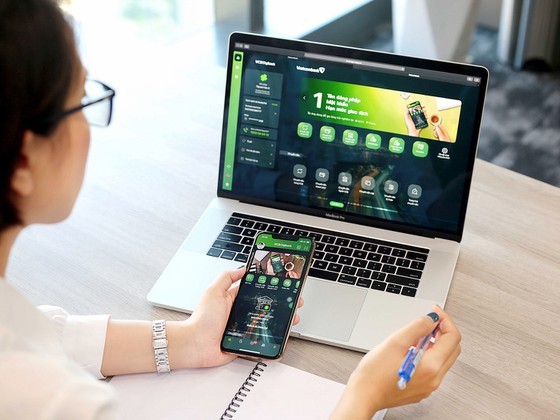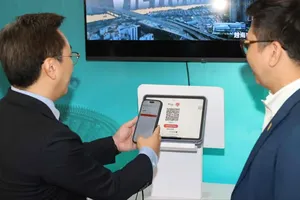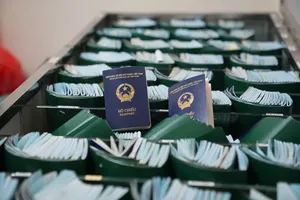 Digital banking boom in Vietnam during coronavirus pandemic
Digital banking boom in Vietnam during coronavirus pandemic The convenience of e-banking has attracted customers and provided service free of charge for customers. Digital products such as payment by quick response code (QR code), savings deposit, digital loans, and most recently Electronic Know Your Customer (eKYC) have been used by many people.
Recently, VPBank has just launched VPBank NEO digital bank, which is a digital bank without transaction offices. VPBank NEO digital bank allows customers to open online accounts on smartphones using eKYC technology. It takes less than five minutes for customers to register for an online account through 2 steps ID verification and face verification.
After having an account, customers can immediately transfer money to others’ accounts as well as receive money, buy and sell bonds, and pay bills without charges. In addition, clients can register to open a virtual credit card for online payment within 30 minutes to 2 hours.
Nam A Bank also launched a modern multi-device integrated Open Banking digital transaction space to help customers conduct multi-channel transactions on just one application.
Additionally, the bank has also deployed VTM Onebank, a virtual bank branch, to enhance customer experience. VTM OneBank helps customers make transactions including depositing, withdrawing cash, opening savings accounts, opening debit cards without needing to go to direct transaction venues.
An electronic payment may reduce people's exposure to germs resulting in the digital banking boom. A survey of Visa Company, a digital payment company, shows a year on year increase of 34 percent in Vietnamese consumers’ payment transactions via Visa credit cards and debit cards in the first months of 2021. Approximate 85 percent of consumers use e-commerce applications on smartphones to shop for goods and services at least once a week and 44 percent of shoppers have purchased commodities in social channels since the pandemic has spread.
Pham Tien Dung, Director of the Payment Department of the State Bank of Vietnam (SBV), said that in the first months of 2021, payment-related activities in the economy still took place transparently despite the impact of the Covid-19 epidemic. In addition to the legal framework and policies in payment-related activities which continue to be improved for the application of new technologies, free-of-charge payment services offered by the State Bank and other credit institutions have met people's demand for online payment.
By the end of April 2021, online payments via internet banking transactions increased by 65.9 percent in quantity and 31.2 percent in value; payment-enabled mobile phones leaped by 86.3 percent in volume and 123.1 percent in value; QR code payment surged by 95.7 percent in quantity and 181.5 percent in value over the same period in 2020.
In fact, to reduce dependence on credit revenue, many commercial banks have increased their income by minimizing costs, including costs of capital mobilization.
One of the solutions to reduce the bank's cost of capital mobilization is to raise the ratio of deposit payable on demand or Current Account Savings Account (CASA) because it has the lowest interest rate, usually ranging from 0.1 percent to 0.8 percent a year. The more money a bank receives, the lower interest rate the bank will offer.
Techcombank said that in order to have a CASA rate of nearly 45 percent, the bank changed its traditional transaction method to online.
Deputy Governor of the State Bank of Vietnam Nguyen Kim Anh said currently, 95 percent of credit institutions have been developing and implementing digital transformation strategies. In addition, most banks have applied new technical and technological solutions in their operations and services. Of 19 banking operations and services, nine have been completely digitized by some banks.
Many banks have also applied artificial intelligence technology and big data to evaluate customers for a decision of disbursement to simplify procedures. According to the banking industry’s Digital Transformation Plan to 2025 with a vision to 2030, approved by the State Bank of Vietnam in May 2021, at least 70 percent of banking operations will allow customers to perform digitally.
















)

)





